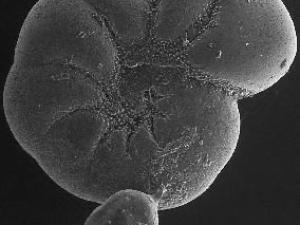

Research Bio
Jere Lipps' research concerns the evolutionary biology and ecology of marine organisms, protists in particular. It involves studies of modern species and of particular problems in the fossil record. Presently, he studies the biology and molecular phylogenetics of coral reef (Papua New Guinea, Enewetak Atoll, French Polynesia) and Pacific Rim foraminifera with the aim of better understanding the fossil record of these forms. Paleobiologic projects include the evolution of the earliest shelled protists in the Precambrian and Cambrian and the biologic constraints on mass extinctions and radiations. Foraminifera are used in environmental analyses of marshes and detection of past seismic histories of megathrust earthquakes. These are field-oriented projects utilizing scuba and geologic work. Work on Antarctic ice habitats has generated a project on habitats and taphonomy of life on Jupiter's moon Europa and on Mars. They examine detailed images of Europa and Mars to identify likely sites for exploring for life on future space missions. He writes about Charles Darwin, the voyage of the Beagle and museums and their exhibits.
Research Expertise and Interest
ecology, paleontology, molecular phylogenetics, evolution of marine biotas, paleoenvironments, coral reef, Antarctic habitats, seismic histories, astrobiology, Charles Darwin
In the News
Tiny foraminifera shells can help assess recovery after oil spill
Pinhead-size marine organisms called foraminifera have been used to monitor pollutants in marshes and oceans, and could help to assess recovery in the Gulf of Mexico following the three-month long Deepwater Horizon oil spill.

